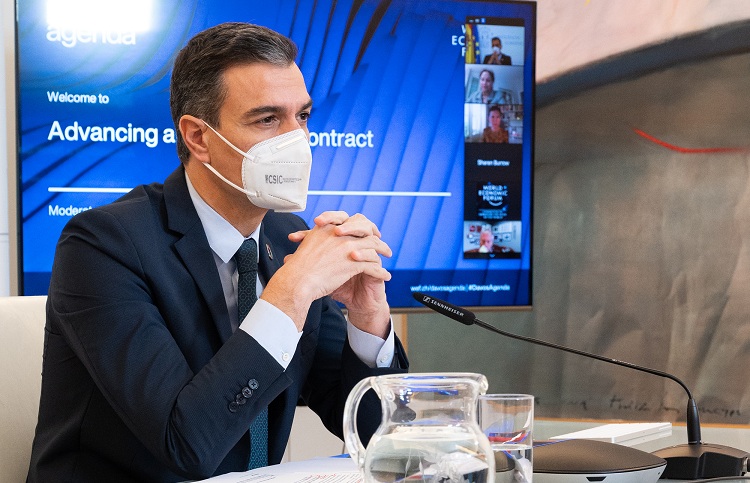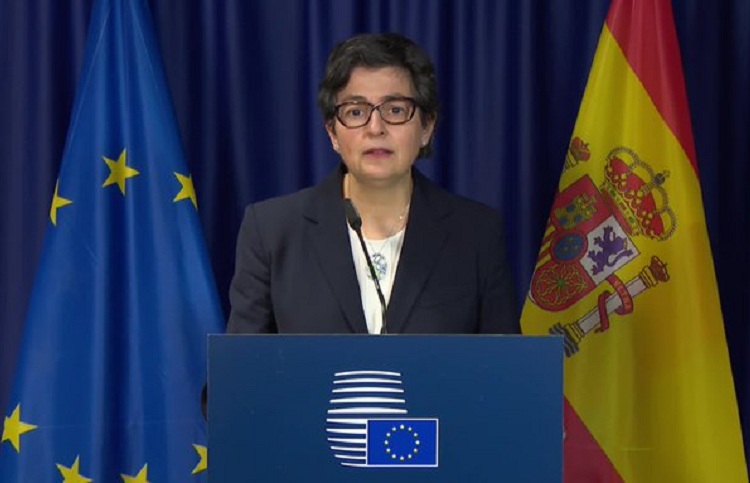The Diplomat
The President of the Government, Pedro Sánchez, yesterday took advantage of his participation in the World Economic Forum in Davos to defend the measures adopted by the Executive to overcome the crisis generated by the COVID-19 pandemic.
Sánchez participated by videoconference in the round table Advancing a New Social Contract of the Davos Agenda, whose main themes were the response to COVID-19 and the efforts to overcome the economic crisis, and which was held this year in the same week in which the World Economic Forum is traditionally organised. The forum has been postponed due to the pandemic and is scheduled to be held in person in Singapore next May.
During his speech, the head of the Executive assured that “the social and economic shield” put in place in Spain after the crisis has served to “protect families, workers and companies” through measures such as the ERTE, the Minimum Living Income, the teleworking law and the guarantees from the Official Credit Institute (ICO). “At the worst of the first wave of the pandemic, these schemes covered 3.6 million workers”, he said. “By the end of 2020, this number had fallen to around 755,000, a decrease of 79% compared to April”, he added.
In any case, he admitted, the youth unemployment rate (40% among those under 25) in Spain is “unacceptable”, which is why the government is preparing a series of measures to improve the qualification and requalification of young people, with special attention to digital skills and the training of girls. In this regard, he recalled, Spain’s Recovery and Resilience Plan foresees a fund of 2.5 billion for a Digital Training Plan and will dedicate “significant resources” to modernising active labour market policies with a view to improving the employability of young people.
In a broader sense, Sánchez also assured that the Government’s Recovery, Transformation and Resilience Plan strategy will allow, “hand in hand with European funds”, investments that will create jobs, transform the Spanish economy and help implement reforms to increase productivity and improve the skills of workers in general.
The Prime Minister also highlighted “Spain’s commitment to the decarbonisation of the economy” and assured that the country’s objective is to achieve 74% of the energy generated by 2030 from renewable sources. He also announced an investment of 1.5 billion euros for the development of renewable hydrogen projects and the current preparation of a law on Climate Change.







